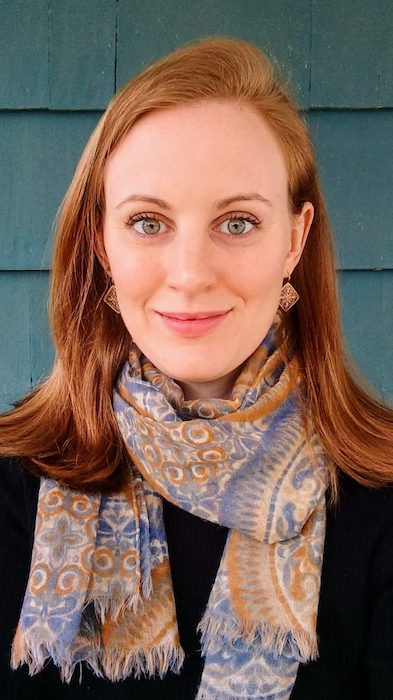Mikaëla Adams to continue her scholarship in Native American studies
OCTOBER 1, 2018 BY

Mikaëla M. Adams
A University of Mississippi history professor has been awarded a coveted fellowship by the American Council of Learned Societies.
Mikaëla M. Adams is among 78 scholars selected from nearly 1,150 applicants for the yearlong fellowship, which she plans to use to make progress on her new book project.
“The fellowship allows me to devote the 2018-19 academic year to research and writing free of teaching and service responsibilities, which is a rare opportunity and privilege,” said Adams, an associate professor in the university’s Arch Dalrymple III Department of History.
Tentatively titled “Influenza in Indian Country: Indigenous Sickness, Suffering, and Survival during the 1918-1919 Pandemic,” Adams’ new volume will provide an ethnohistorical account of the world’s deadliest pandemic and its long-term consequences for Native American communities. She has conducted research at the National Archives in Washington, D.C., and Kansas City, Missouri, where she photographed more than 12,000 pages of archival documents.
“This year, I will process and organize these documents, begin to outline my new book project and start drafting chapters,” Adams said. “I will also read and analyze dozens of oral interviews conducted with native peoples in the mid-20th century in order to reconstruct how native peoples experienced the influenza pandemic of 1918.”
Adams also plans to read various digitized government reports to learn if and how the pandemic affected federal Indian policy in this period, in particular the management of boarding schools and the Indian medical service.
“I am also completing a journal article that will ‘test run’ some of the ideas for the larger book project,” she said. “The article will focus specifically on the influenza pandemic at the Haskell Institute, which was the largest federal Indian boarding school in the United States at the time of the pandemic.”
Adams’ work focuses on how the influenza virus infected indigenous people on reservations and boarding schools, how their living conditions exacerbated the effects of influenza, how institutionalized segregation determined native access to health care, how indigenous people responded medically, and how this health crisis affected the federal-tribal relationship.
“By combining the methodologies of medical history and ethnohistory, moreover, it will highlight both the biological consequences of influenza on Native American communities and the ways that social constructions of race, ethnicity, sickness and healing shaped the experience of infection for indigenous people in this time period,” she said.
Adams previously authored “Who Belongs?: Race, Resources, and Tribal Citizenship in the Native South” (Oxford University Press, 2016). The book explores how six Southeastern tribes – the Pamunkey Indian Tribe of Virginia, the Catawba Indian Nation of South Carolina, the Mississippi Band of Choctaw Indians, the Eastern Band of Cherokee Indians of North Carolina, the Seminole Tribe of Florida, and the Miccosukee Tribe of Indians of Florida – decided who belonged to their communities in the late 19th and 20th centuries.
Adams is most deserving of the fellowship, said Noell Wilson, Croft associate professor of history and UM history chair.
“We are absolutely thrilled with the award since it is one of the most highly competitive cross-disciplinary fellowships in the humanities writ large,” Wilson said. “Her selection speaks not only to the innovation and ambition of this current project, but also to her emergence as a nationally recognized scholar of Native American studies even while still at a relatively early stage in her career.”
A historian of modern America with a focus on Native American history, Adams received her doctorate from the University of North Carolina in 2012 and joined the Ole Miss faculty that same year.
For more information about the Croft Institute, visit https://www.croft.olemiss.edu/home/. For more about the Arch Dalrymple III Department of History, go to https://history.olemiss.edu/.